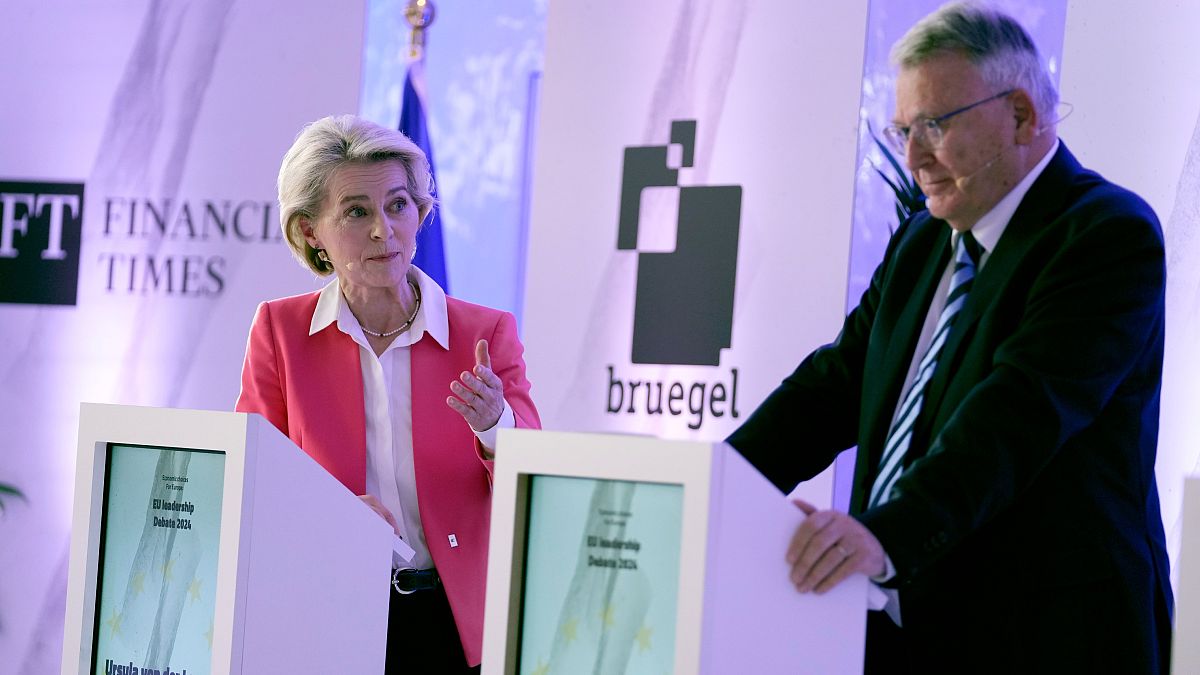With just two weeks left until the EU elections, candidates are now focusing on key issues such as the size of the bloc’s trillion-euro budget, European air defense, and trade relations with Beijing. Ursula von der Leyen, Sandro Gozi, and Anders Vistisen are among the top contenders vying for the position of European Commission president. Von der Leyen hinted at establishing a centrally-funded European air defense system and implementing tariffs on Chinese goods, while Gozi emphasized the need to increase the EU budget through new revenue sources like a tax on food waste. On the other hand, Vistisen proposed significant cuts in EU staffing levels and agencies to reduce costs.
The debate also touched on trade relations with Beijing, with von der Leyen suggesting a more tailored approach to imposing tariffs on Chinese goods compared to the US. While the US recently imposed steep tariff increases on various Chinese products, the EU is conducting an investigation to ensure compliance with global trade norms. Von der Leyen highlighted the importance of aligning the level of duties with the level of damage caused by Chinese subsidies, emphasizing a more cautious approach towards trade with China. The candidates also discussed the role of the EU in various global issues such as Ukraine and Gaza, showcasing their differing perspectives on international relations.
As the election campaign intensifies, candidates are positioning themselves on key policy issues to gain the support of voters. Von der Leyen, Gozi, and Vistisen all offered distinct approaches to tackling the challenges facing the EU, from budget allocations to trade wars and military defense. The upcoming Eurovision debate will provide a platform for these contenders to further articulate their visions for the future of the EU and connect with a wider audience. With the EU facing critical decisions on its budget and trade policies, the outcome of these elections will have a significant impact on the direction of the bloc and its standing in the global arena.
Currently, the European People’s Party, led by von der Leyen, appears to be in a strong position to retain the majority in the European Parliament. However, given the need to form coalitions to secure a majority, von der Leyen will have to navigate the complex political landscape of the EU. The outcome of the elections will not only determine the composition of the European Parliament but also the leadership of the European Commission, which will play a crucial role in shaping the future policies of the EU. The candidates’ performance in the upcoming debate and their ability to connect with voters will be critical in determining the final outcome of the elections and the future direction of the EU.
In conclusion, as the EU election campaign approaches its final stage, candidates are focusing on key policy areas such as budget allocations, trade relations with China, and military defense. Von der Leyen, Gozi, and Vistisen offer different perspectives on these critical issues, outlining their visions for the future of the EU. The upcoming Eurovision debate will provide a platform for these candidates to engage with voters and present their policy proposals. The outcome of the EU elections will have a significant impact on the leadership of the European Commission and the direction of the EU’s policies in the coming years. With the EU facing various challenges internally and externally, the candidates’ ability to address these issues effectively will be crucial in determining the future of the bloc.











